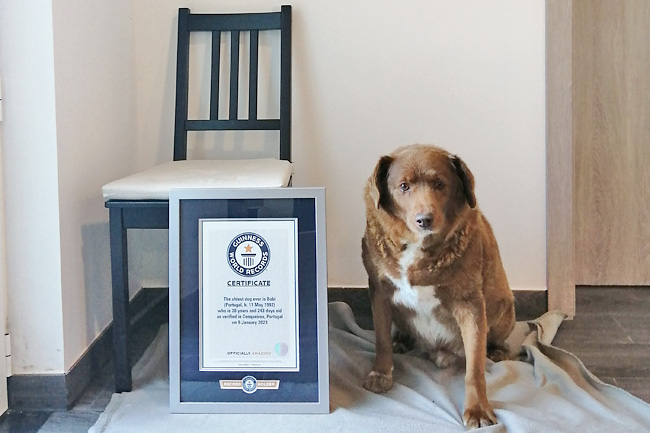THE WASHINGTON POST – Walk, eat, play, sleep. Repeat.
That’s how Bobi, recently deemed the world’s oldest living dog by Guinness World Records, spent much of his 30 years on his family’s farm in the village of Conqueiros, Portugal.
Unlike the owner of the Rafeiro do Alentejo, the rest of the world hasn’t had the chance to watch their furry friend age three decades with them.
“That really is an unusual thing,” an assistant professor at the University of California at Davis School of Veterinary Medicine Erik Olstad told The Washington Post.
“Owners will always ask me, ‘How can I make my dog live the longest life that they can?’ That’s a loaded question because there are so many variants that go into life expectancy.”
A lot of it is genetics. Life expectancy and predisposition for diseases vary by breed, Olstad said. But there are still things dog owners can do to give their pets the opportunity to live a long and happy life, vets told The Post.

“Dogs are very much like people,” said a veterinary professor at North Carolina State University’s College of Veterinary Medicine Natasha Olby. “They need healthy diets, exercise, community, engagement and regular healthcare.”
Maintaining a healthy weight is crucial, experts told The Post. Dog owners should strive to give them quality dog food and avoid overfeeding because, as they age, the extra weight will make it much harder to treat mobility conditions such as arthritis or ruptured ligaments.
“If I see dogs entering senior years overweight, I can always bet money that we are going to have some serious mobility conversations moving on,” Olstad said.
Preventive care is a must. Keep their vaccinations up to date, take them to the dentist and visit the vet once or twice a year for a regular checkup.
If you’ve been fortunate enough to raise a senior dog, you should not conclude that certain behaviours or conditions are just ailments that come with age, said director of the Columbine Health Systems Center for Healthy Aging at Colorado State University Nicole Ehrhart.
“One thing that we should not assume as a pet slows down is, ‘Well, it’s just getting old’,” Ehrhart said. If you are seeing your dog slowing down, that should be a warning flag for you to seek veterinary assessment.”
Physical and mental exercise are also key. Take your dog on regular walks and runs that stretch out as long as your dog’s breed and age allow.



















































